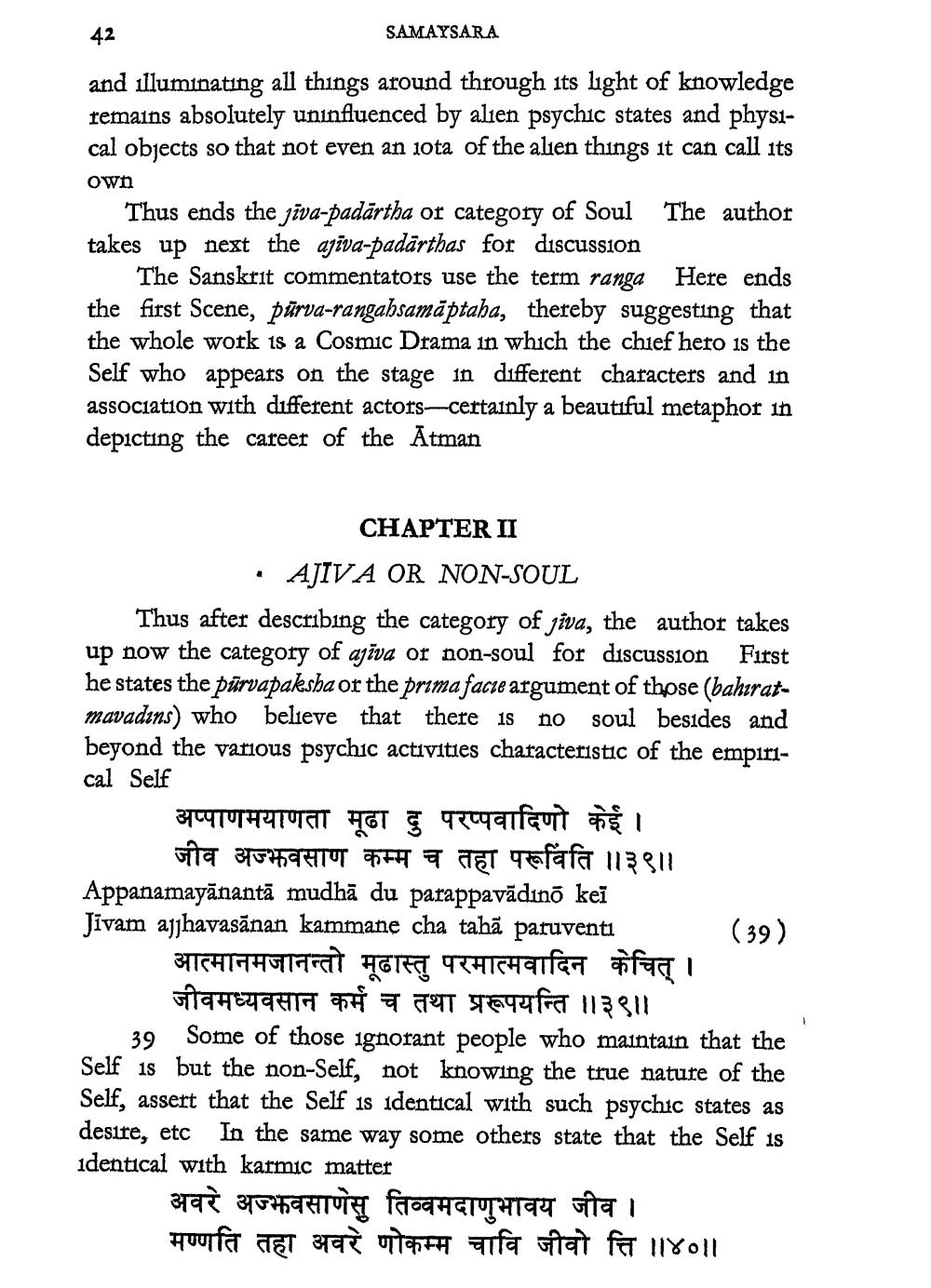________________
SAMAYSARA
2
and illuminating all things around through its light of knowledge remains absolutely uninfluenced by alien psychic states and physical objects so that not even an iota of the alien things it can call its own
Thus ends the jiva-padārtha or category of Soul The author takes up next the ajiva-padārthas for discussion
The Sanskrit commentators use the term ranga Here ends the first Scene, pūrva-rangahsamāptaha, thereby suggesting that the whole work is a Cosmic Drama in which the chief hero is the Self who appears on the stage in different characters and in association with different actors-certainly a beautiful metaphor in depicting the career of the Atman
CHAPTER II · AJIVA OR NON-SOUL Thus after describing the category of Jiva, the author takes up now the category of ajīva or non-soul for discussion First he states the pūrvapaksha or the prima facie argument of those (bahıratmavadıns) who believe that there is no soul besides and beyond the various psychic activities characteristic of the empirical Self
अप्पाणमयाणता मूढा दु परप्पवादिणो केई ।
जीव अज्झवसाण कम्म च तहा परूविति ॥३९।। Appanamayānantā mudhā du parappavādınő kei Jīvam ajjhavasānan kammane cha tahā paruventi (39)
__ आत्मानमजानन्तो मूढास्तु परमात्मवादिन केचित् ।
जीवमध्यवसान कम च तथा प्ररूपयन्ति ॥३९॥ 39 Some of those ignorant people who maintain that the Self is but the non-Self, not knowing the true nature of the Self, assert that the Self is identical with such psychic states as desire, etc In the same way some others state that the Self is identical with karmic matter
अवरे अज्झवसाणेसु तिव्वमदाणुभावय जीव । मण्णति तहा अवरे णोकम्म चावि जीवो त्ति ॥४०॥




